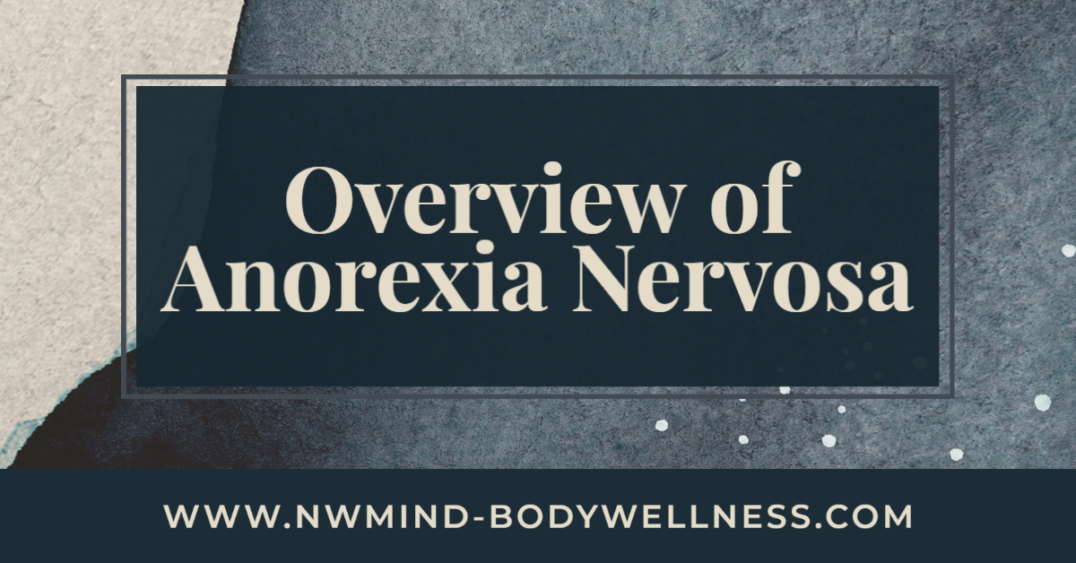Overview of Anorexia Nervosa
Anorexia nervosa is an eating disorder in which individuals may see themselves as overweight, and take drastic measures to lose weight or prevent weight gain. The symptoms of anorexia can be devastating to one’s health, both mentally and physically. Understanding the warning signs and symptoms of anorexia is vital, as treatment is available to those who need it and has been proven to help many.
SYMPTOMS
The symptoms of anorexia nervosa may vary depending on the person. Common symptoms include, but are not limited to:
- Extremely restricted eating
- Intense fear of gaining weight
- Relentless pursuit of losing weight and thinness
- Distorted body image, with self esteem often heavily influenced by perceptions of body weight
Over time other symptoms may develop, these include:
- Mild anemia
- Brittle hair and nails
- Low blood pressure
- Thinning of the bones
- Lethargy, or feeling tired all the time
- Infertility
- Damage to the structure of the heart
- Brain damage
Treatment
Treatment may vary but plans commonly include:
- Psychotherapy
- Cognitive behavioral therapy is often used as it helps teach individuals how to identify distorted thoughts of one’s body image and unhelpful thinking patterns. It also focuses on replacing these harmful thoughts with more positive ways of thinking.
- Medication
- In some cases, medication such as antidepressants or anti-anxiety drugs may be used. Although there are no medications directly for treating eating disorders at this time, anorexia is often co-occurring with other illnesses such as depression or anxiety, and medicine can help treat these underlying issues.
Finding TREATMENT AND RESOURCES
- To learn more about anorexia nervosa and other eating disorders, or to find out if it may affect you, we recommend contacting your health care provider.
- To read more about anorexia, the following resources are suggested:
Return to the homepage: https://nwmind-bodywellness.com/
Read more articles at: https://nwmind-bodywellness.com/articles/








